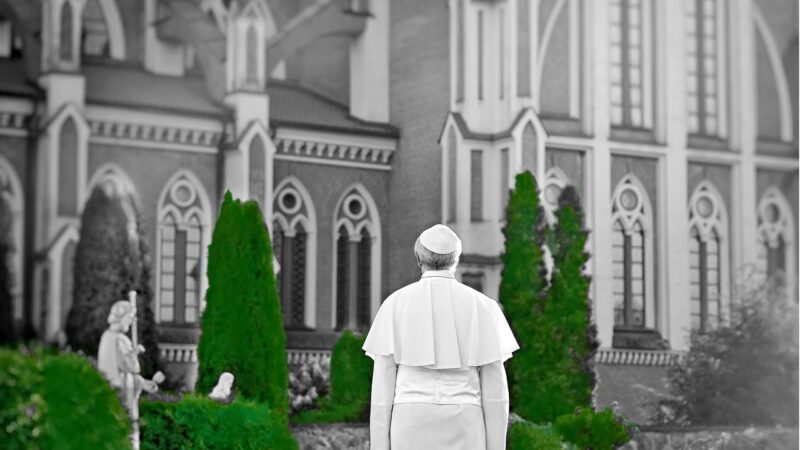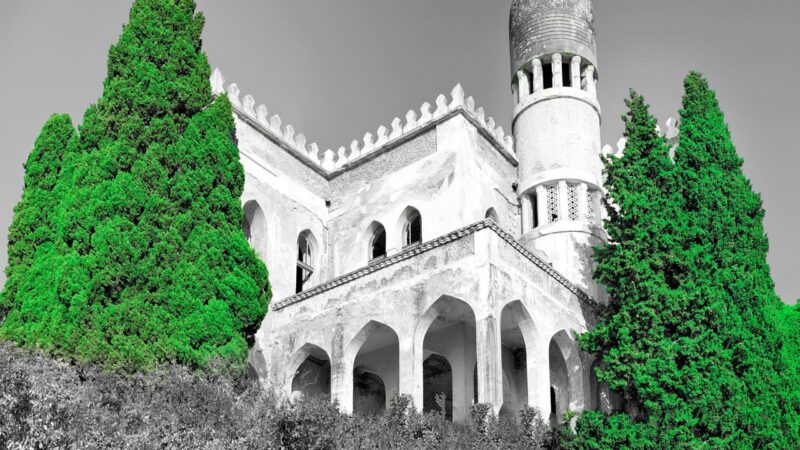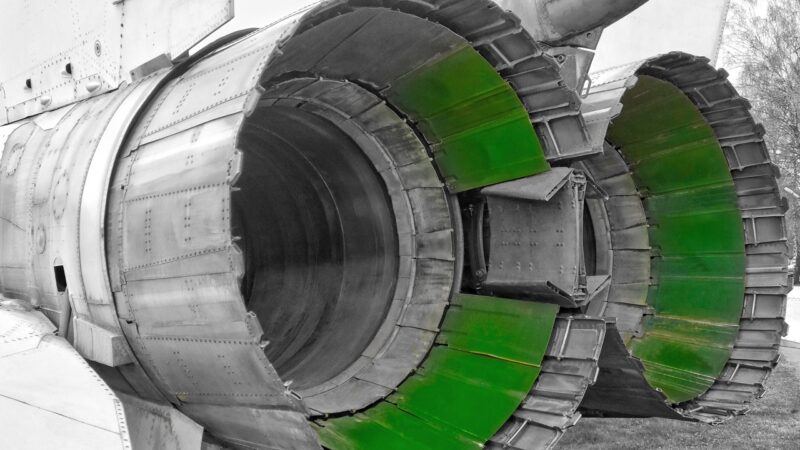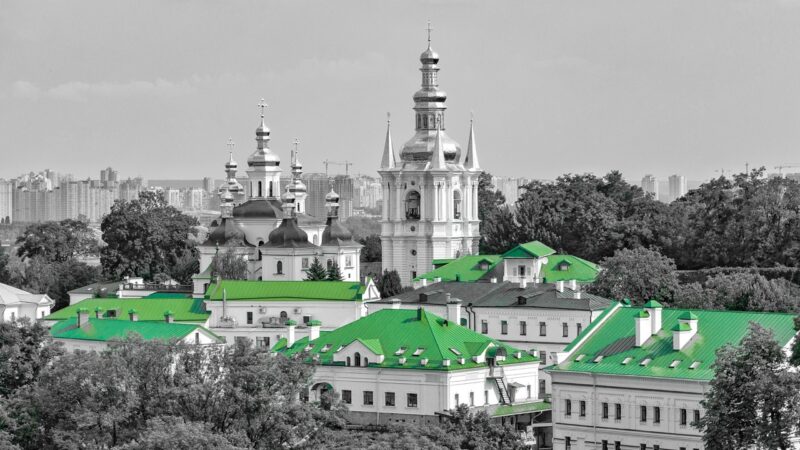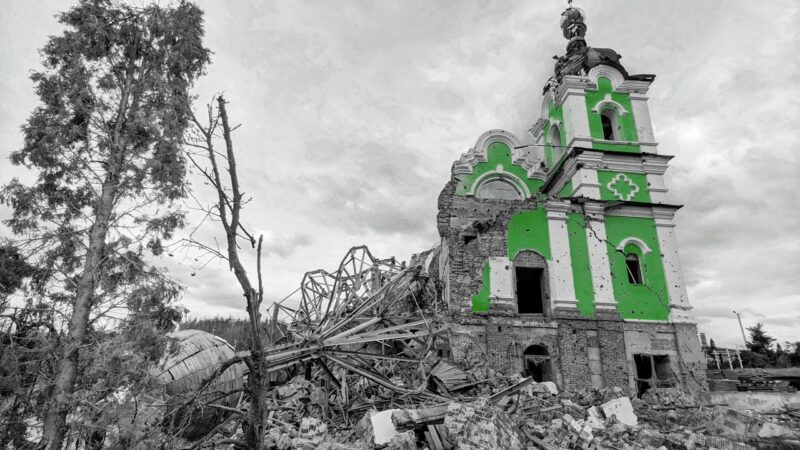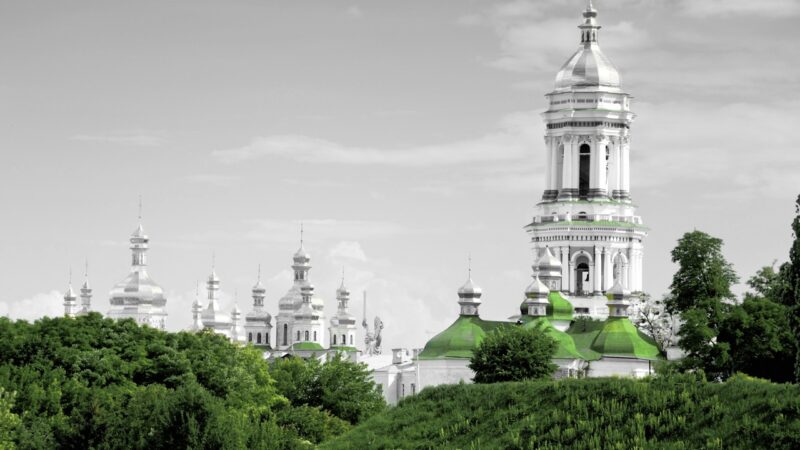Interview with Alexander Motyl | “After Russia’s departure from great power status, the world will once again become bipolar”
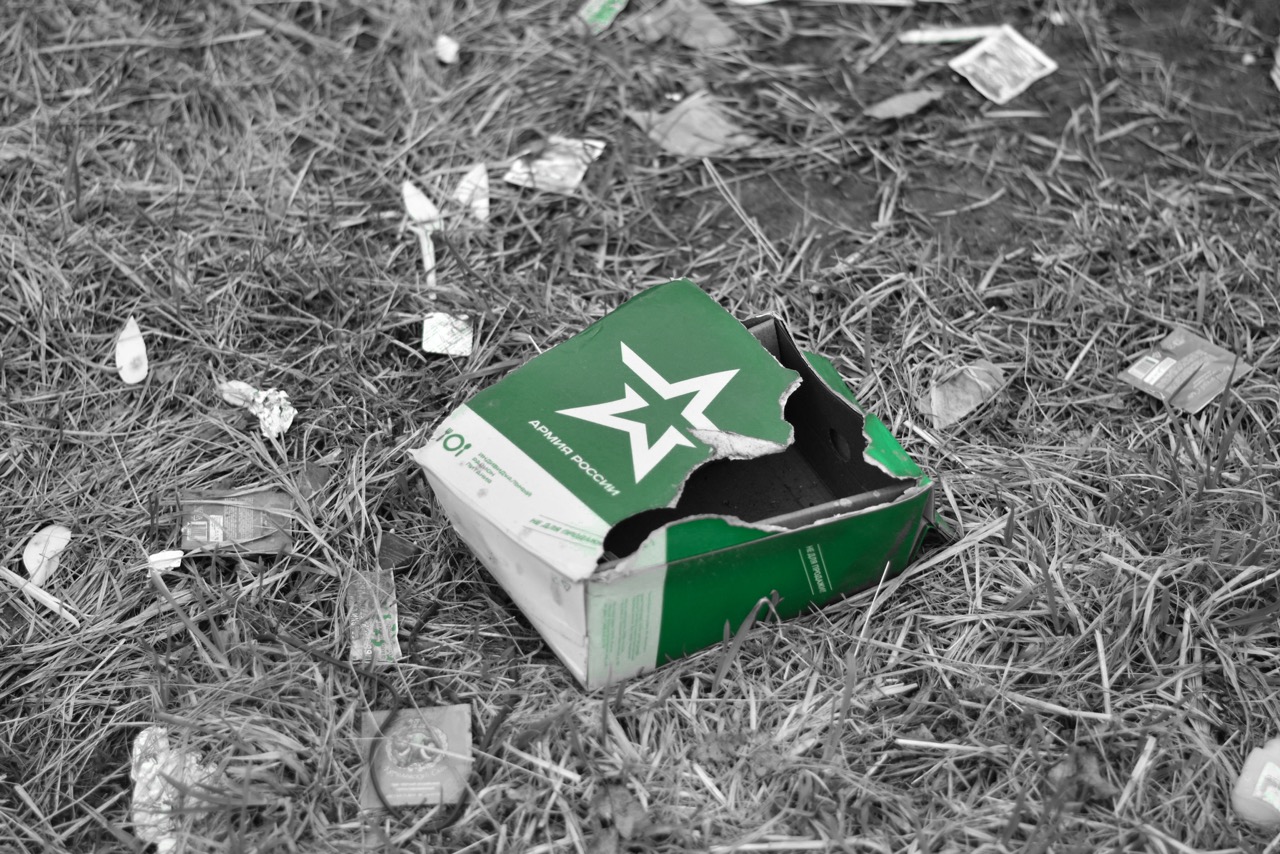
Oleksandr Pankieiev (CIUS): Many experts predicted that Russia’s defeat in Kherson would bring an end to Putin’s regime. Kherson was liberated one week ago. Do you think we have crossed that point of no return in Russia’s war against Ukraine, or do we need to watch for other signs?
Alexander Motyl: Well, it seems to me that Putin has already lost. So, it’s important to keep in mind that he’s been defeated, and Russia has been defeated. The war isn’t over yet. But thus far, Russia has lost, as has Putin.
So, my first point would be to emphasize that I have been fairly certain about Putin’s not surviving the war since about March or April. That is not to say I predicted the war; quite the contrary, I did not. But it seemed to me that starting a war would be a disaster for Russia, and I thought that for this reason Putin wouldn’t do it. Well, he did, and it did turn out to be a disaster—a strategic miscalculation on an enormous scale. It would be hard to overestimate the gross idiocy of Putin in starting this kind of war.
And now, with every day, as the occupied territories are progressively being liberated, as discontent within the Russian army grows, as the number of Russian soldiers killed grows, as discontent and opposition even within Russia itself grows, albeit slowly, as increasingly larger numbers of people affiliated with the oligarchs, political or economic, are persuaded that Russia can’t win—as all of these factors are multiplying, as Ukraine is not only resisting but liberating, as the West remains committed to helping Ukraine—Putin’s own position is getting progressively weaker and weaker; his legitimacy is eroding, and his popularity is declining.
Inasmuch as his legitimacy is eroding, so too is the stability of the fascist system he constructed, within which he is the core—the linchpin. So too, that system is becoming progressively weaker, which means that Putin’s weakness will have an impact on the stability of the system. And the fascist system’s progressive weakness will have an impact on the Russian Federation’s stability. Will a systemic crisis happen tomorrow? I don’t know, it could. It’s likely to happen within the next six months to a year, perhaps sooner.
Putin’s departure becomes more and more likely. A year ago, the likelihood of Putin’s departure was tiny. Today it has become significantly larger. But we can’t predict how much larger; there’re just too many imponderables.
Pankieiev: Apart from Putin and his aides in the Kremlin, how do you see the motivation for the collective ordinary Russians to support the invasion and commit war crimes in Ukraine?
Motyl: Well, collective potentially refers to two sets of individuals. One is the population in general, which has in fact absorbed many of the values propagated by the Putin regime for the last twenty years. I’ve written about this, and in one of my essays I’ve even used the term “collective Putin.” Essentially, it’s a stand-in for political culture—namely, the Russian political culture that has been, is, and because of Putin has likely become even more authoritarian, even less democratic than it normally would have been.
But there are differentiations. The “collective Putin” is significantly weaker in Moscow and St. Petersburg than in the provinces. So, if there is going to be trouble, if people are going to take to the streets, if people are going to engage in demonstrations or other kinds of actions, it’s likely to take place in the big cities, because that is where revolutions, uprisings, and insurrections always take place. So, there won’t be a revolution in Omsk or Tomsk, but there very well could be one in Moscow or St. Petersburg. Again—if Putin leaves, if there is disarray, if there is conflict, and so on.
Now, the second category to which the term “collective Putin” could apply would be the political and economic elites. And again, we see that whereas a year or two ago these elites solidly—almost uniformly—supported Putin, nowadays serious cracks have emerged. A recent study published by Meduza shows that many economic and political elites are persuaded that the war is lost. We know from insiders that there’s fragmentation within the political elite. People are dissatisfied with Putin. We know that the General Staff and FSB are at loggerheads as well.
Thus, it’s not clear that there is today a “collective Putin” within the elites. I’m not even sure that his closest associates, people like Naryshkin and Lavrov, are all that committed to Putin. If given the opportunity to throw him to the wolves and save themselves, I do not doubt that they would do just that. They are not ideologically committed to him; they’re not personally committed to him. And they would easily betray him if and when the need for that to happen arose.
We often hear: “Well, what happens if Putin goes, won’t things get worse?” What we know from Russian history, what we know from Soviet history, and what we know from comparative studies is that in the immediate aftermath of a dictator’s departure—for whichever reason or reasons—one of two consequences is very likely. The first is a power struggle, and that makes perfect sense because the dictator has defined the political system. This is especially so with Putin: he is the core of that system. If and when he goes, that system will be without its core, and it could easily implode.
It won’t be obvious to any of us who the successor will be, and it won’t be obvious to the Russians, either. During a power struggle, however, the attention that is paid to Ukraine will automatically decline, and the war will become somewhat less important.
Furthermore, based on historical experience the winner of such a power struggle is usually a little more committed to openness, democracy, and some kind of liberalism. I want to underline “some kind”—we’re not talking about pure democracy, pure liberalism, but rather a bit more. We saw that with the “Khrushchev Thaw” following Stalin and with Gorbachev’s glasnost and perestroika following Brezhnev. And it makes sense for the immediate successor to try to be different from the predecessor. Because a transition is an ideal opportunity to blame the problems on the person who preceded you. Because someone will have to take the blame for Russia’s war on Ukraine; someone will have to take the blame for 100,000 or 200,000 dead Russians. Someone will have to take the blame for the sanctions, for the continuing collapse of the economy. And who better to take the blame than your predecessor?
But for that to work, you need to be able to position yourself as someone who is different, who is more democratic, more liberal, who is promising a new Russia, a “new deal,” a “new economic program.” So, I am somewhat optimistic that in the aftermath of Putin’s departure there will be a good chance that the winner or winners of the power struggle will be people who are more normal, so to speak.
Pankieiev: Some speak about the “collective Putin” and that removing him from power would not bring any significant changes but could even worsen the situation in Russia. What are your thoughts about it? How will Russia after Putin look?
Motyl: Very many Russians have absorbed an ideology that has its roots in the Soviet Union and, more importantly, within Imperial Russia. However, this mindset has become more virulent, more dangerous, because it’s been attached to a fascist imperialist ideology under the regime that Putin has constructed. And it’s a regime that brooks no compromise: you’re either with us or you’re against us.
The attitudes of this “collective Putin” towards Ukrainians have historically been very negative, both in Imperial Russia and the Soviet Union, which committed genocide against Ukrainians on several occasions. These attitudes were more or less absent in the official discourse during the Yeltsin and Gorbachev periods, but they have been central to Putin’s rise to power, his ideology, and the degree to which Ukraine plays a key role in this ideology. So, you have an accumulation of cultural predispositions that are destructive of and certainly negatively attuned towards Ukrainians.
For Putin and for the people in the “collective Putin,” Russia’s ascendancy necessitates Ukraine’s elimination. The two cannot coexist in their heads. Ukraine either has to be absorbed or it has to be destroyed. In order to justify a genocidal war, the regime—and, to some degree, the people in general—has to demonize and dehumanize Ukrainians. After all, the Russians are bombing hospitals, they’re bombing theatres, they’re destroying kindergartens and daycare centers. They’ve already destroyed a significant portion of the Ukrainian population.
How can one possibly justify that? Well, one needs to say that Ukrainians are Nazis, that they are Satanists, that they’re drug addicts, that they’re evil. We can see this even in statements by the so-called Patriarch Kirill, we see this in statements by that crazy former prime minister Dmitrii Medvedev, we see this in statements made by other propagandists like Solovyov, Simonyan, Skabeeva, and others. They positively hate Ukrainians. They see them as vermin. What the Jews were to Nazi Germany, Ukrainians have become to the Russians.
Now let’s just look at the war itself. From almost the very first day, the war started going badly. The expectation was that Russia would be marching in full uniform down Khreshchatyk Street within a few days of the invasion. And instead, it was clear from about the third, fourth day, or possibly even earlier, that that wasn’t going to happen.
And then there was the withdrawal from Kyiv, Sumy, Chernihiv; then there was the withdrawal from Kharkiv, then there was the withdrawal from western Kherson. Then there’s also the destruction of the Moskva ship and the Kerch Bridge to Crimea. All of these cumulatively translate into enormous frustration for the Kremlin elites, for the Russian population, and especially for the soldiers. And in this kind of brutalized environment, where they’re told that they are fighting Nazis, vermin, inhuman people, it’s very easy for them to translate their frustration, their anger into violence—a violence that is directed against men, women, and children regardless of age, regardless of position. Hence, these mass rapes; hence, the torture.
Pankieiev: There is some talk in the West about leaving the possibility of ending the war through diplomatic negotiation and signing a peace deal at the end. Russia sometimes signals the need for peace talks as well. What is your opinion about this scenario, and how dangerous can it be for Ukraine to negotiate peace with Russia at this stage?
Motyl: Well, it would be stupid and dangerous. After all, Ukraine is winning, so they should keep on winning. And then, at some point perhaps negotiations might make sense. But it’s also dangerous because there’s no way that one can believe anything the Russians say. They are constantly lying, they have constantly lied, and they will continue to constantly lie. If something is said by a Russian official, one has to assume the opposite is true. That’s really the best way of interpreting their statements. So, if they say peace, they mean war. If they say negotiations, they mean capitulation. There is no way in which agreement can be reached with people who are unreliable and who are not credible. One must assume that whatever peace treaty the Russians sign would be treated as a scrap of paper by them from the very beginning. So that is point one.
Point two, I am not so sure that the mood in the West is all that supportive of negotiations. There are people, there are factions, there are groups who are urging Ukraine to negotiate. But the key country, the United States, has said that it’s up to Ukraine. And the U.S. indisputably sets the tone in this, as well as in so many other things.
Moreover, just yesterday the NATO Parliamentary Assembly decreed that Russia was a terrorist state. How do you sign a peace treaty with a terrorist? Well, you don’t; that’s just the reality. Moreover, this resolution is indicative of the general mood within the West. I’m not so sure that people will be pushing Ukraine very hard.
And the final point I want to make is this: Putin, when he formally annexed Luhansk, Donetsk, Zaporizhzhia, and Kherson oblasts—and when, of course, they went through with the referendum and the Duma approved it—he created an impossible situation for himself and for whatever possible peace talks that might at some point take place. According to the Russian logic, these regions are now formally part of Russia. There is no mechanism within the Russian constitution for de-annexing territories.
Of course, Russia is a fascist state, and Putin doesn’t care about laws. So, if he wanted to very badly, I’m sure he could push this “peace talks” ruse through. But for this to happen, either Putin would have to destroy a sizable portion of the Russian elite, or they would have to destroy him. In any case, he’s created an impossible situation because, formally, there’s nothing to talk about.
Ukraine says these territories are Ukrainian. Russia says no, they’re Russian. How do you produce a compromise? Before that happened, there was at least a thinkable compromise. It was at least possible, as some people said, that Russia would retreat to the boundaries of February 23rd, Ukraine would get reparations, and then Donetsk, Luhansk, and Crimea would be left for the future. But now, what is there to compromise about? Nothing at all.
Therefore, the only way that change can occur is for Putin to go. If and when he goes, then there will be an opportunity for a new relationship that makes possible an end to the war. Right now, though, it’s pretty much impossible.
Pankieiev: The full-scale invasion of Ukraine on February 24 of this year dramatically changed the perception of Ukraine and Russia in the West, and particularly in the EU. How will those changes define postwar politics and diplomacy in the region and the world? What will be the role of Ukraine?
Motyl: Well, the perceptions have indeed changed, that’s true. And that is very important. First of all, they’ve changed at the level of the mass population. People actually know where Ukraine is, whereas half a year ago they had no idea.
They’ve also changed in the sense that Ukraine is finally on the mental map of the Western policymaking community. Policymakers finally understand that Ukraine matters to their security, to their prosperity, to their lives.
As to what happens after Russia’s defeat in the war—as you can see, I’m assuming that’s a done deal—the major factor that will determine Ukraine’s position in the new European architecture will be the fact that Ukraine will have won—that it will have defeated a country that is much stronger. That it will possess an army that is going to be Europe’s strongest, and in fact may be one of the world’s top five or top ten armies. So, suddenly Ukraine becomes important not just on the mental map; it becomes important in a geopolitical sense as well.
Of course, one of the major downsides for Ukraine will be that enormous investments will be required to bring the economy back to some degree of normality. And that will be an Achilles heel for Ukraine for a while. But the military balance will have shifted significantly: Russia’s army will have been defeated; Ukraine’s army will have become victorious. And Ukraine will therefore be able to play a much more significant role in the politics—not so much the economics but the politics—the geopolitics of the West.
That Russia will become significantly weaker politically, militarily, and economically means that its geopolitical role will also be significantly diminished. It’s possible that Russia may even experience collapse or descend into civil war. But whatever the scenario, the fact that Russia will become significantly weaker will have implications for Asia. Because if you were China, would you really want to have an alliance with a weak, mendacious, and irresponsible country? It doesn’t make any sense.
As a final point, with Russia’s departure from great power status, the world will once again become bipolar. There will be the United States and China. The second-tier power will be Europe, while Russia will find itself on the third, fourth, or even on the fifth tier. That will change geopolitics as well, because the United States and Western Europe will be closely allied.
One of the important things that we learned from the Cold War is that bipolar systems are less conducive to war than multipolar systems. One of the reasons we have wars today is precisely because of this multipolarity. So, if Russia goes out of the calculation, then we come back to a more stable international political arena. And that would be good for everybody—especially, of course, for Ukraine.
Ostap Kushnir: What developments on the Russo-Ukrainian battle and diplomatic fronts do you expect will happen during winter 2022/23?
Motyl: Well, when it comes to Europe and the United States, the U.S. has ample reserves of energy, so we will stay warm, and of course Canada will as well. Europe may face some shortages, but as you know, the Europeans have taken some serious steps in the last few months to guarantee sufficient supplies of oil and gas. So, my guess is that there may be some problems, some difficulties, but the Europeans will manage. They’ll have to drink a little more Jägermeister to keep warm. But I don’t foresee a crisis.
It’s obviously more complicated with the Ukrainian population. I can’t even begin to imagine what it’s like when you have no electricity, heat, or water, especially if you’re living in a 10-storey building. In that sense, living in a village is preferable because at least you can burn wood to keep warm.
But it’s often said, and I think I agree, that Ukrainians will manage simply because they have no alternative. They’re also fired up, they’re angry, they’re willing to take a lot. It will be a difficult winter. But as I said, and as many Ukrainians have said, there is no alternative. So, they have to survive.
It’s similar to 1947 in Germany, which was known as the hunger-winter: it was especially cold, there was very little food, the economy was in shambles, and the country, as you know, was destroyed. The winter was very tough, but the Germans somehow managed. Well, if the Germans could manage in ’47, I’m sure the Ukrainians can manage in 2022 to 2023.
In terms of the battlefield, the winter will be equally harsh for all the soldiers on the front lines. The difference is that Ukrainian soldiers will be fighting on their own territory and will therefore have more access to supplies, warmth, food. Their logistical supply lines are shorter, and they may be able to get some assistance from local inhabitants. None of that will apply in equal force to the Russians on the front line. They will have a far harder time supplying themselves with the necessities for surviving the winter. And then one needs to consider that the performance of the Ukrainian army and Ukrainian logistics has been exceptional. That’s unlikely to change in the next few months.
In contrast, the performance of the Russian army and its commanders and logistical supply networks have been poor, sometimes even catastrophically so, and it’s likely that that too will continue throughout the war. It seems to me that, other things being equal, Ukraine will have an advantage in the winter, and it will be able to convert that advantage into further territorial gains. If it continues to get significant Western military support, of course; that is the sine qua non of all these discussions.
